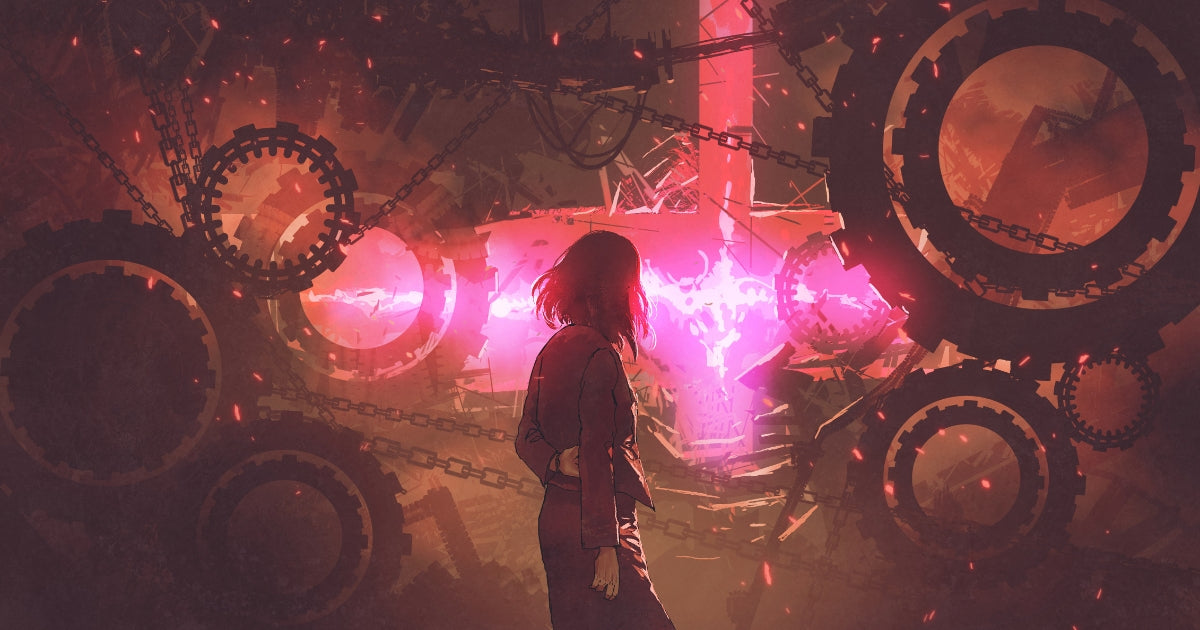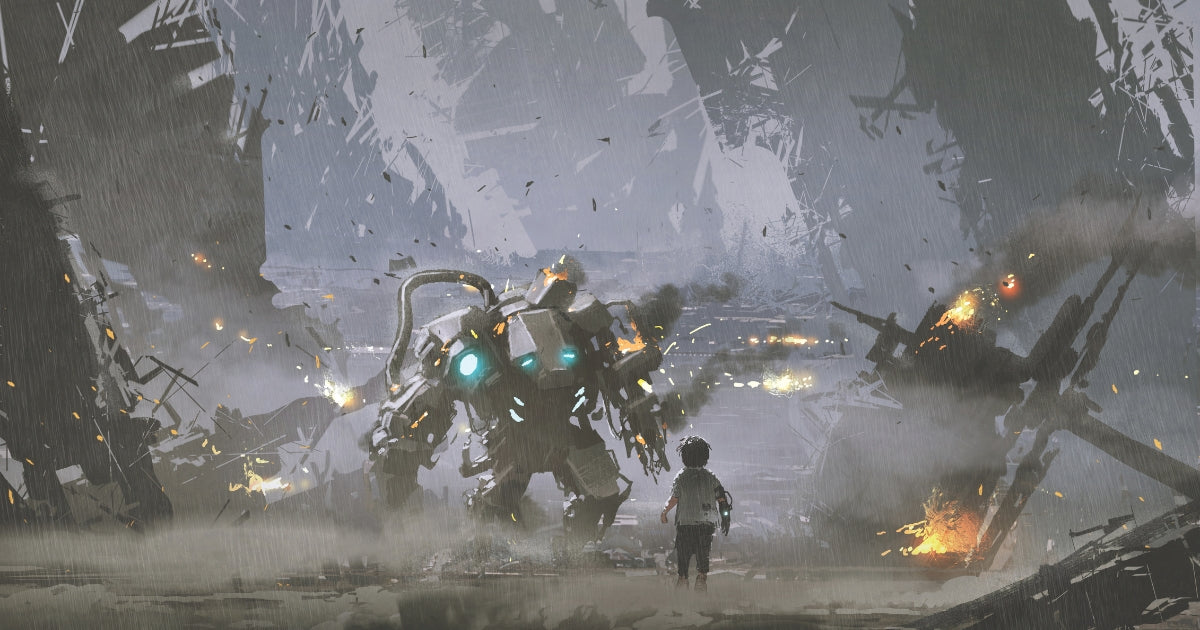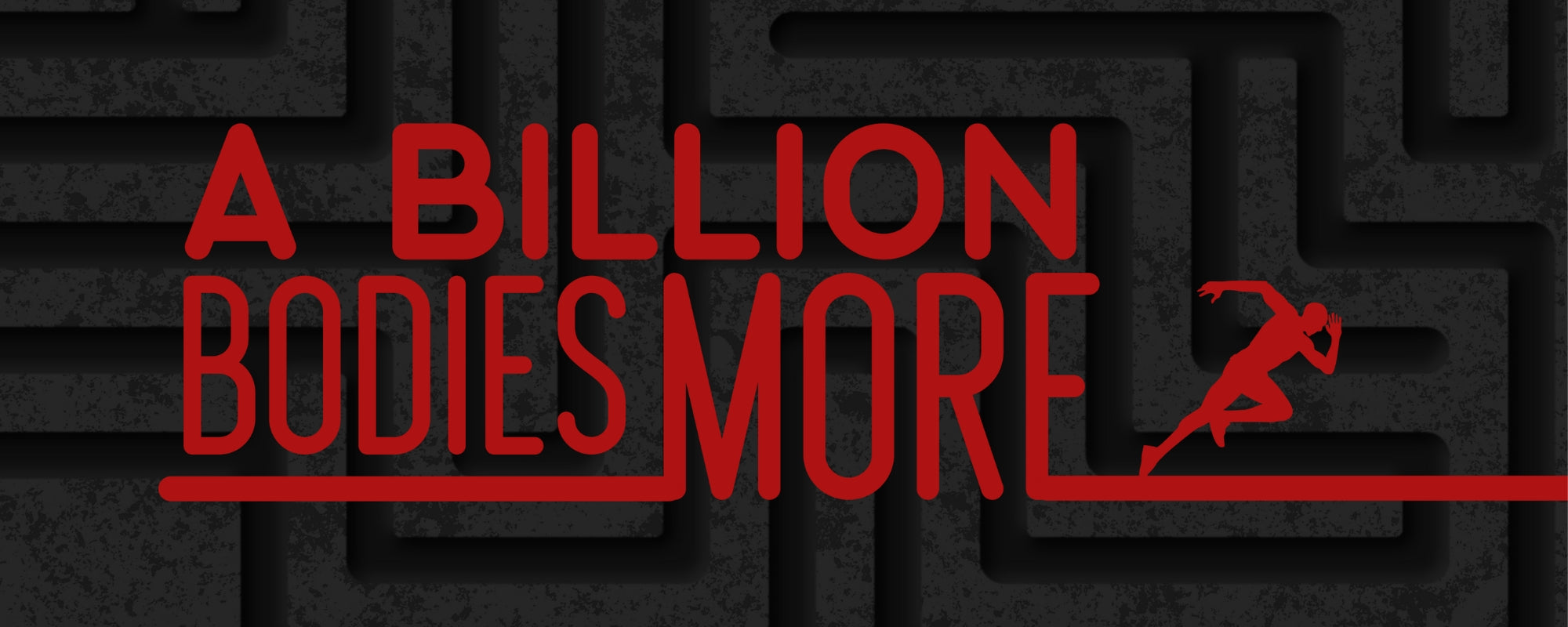
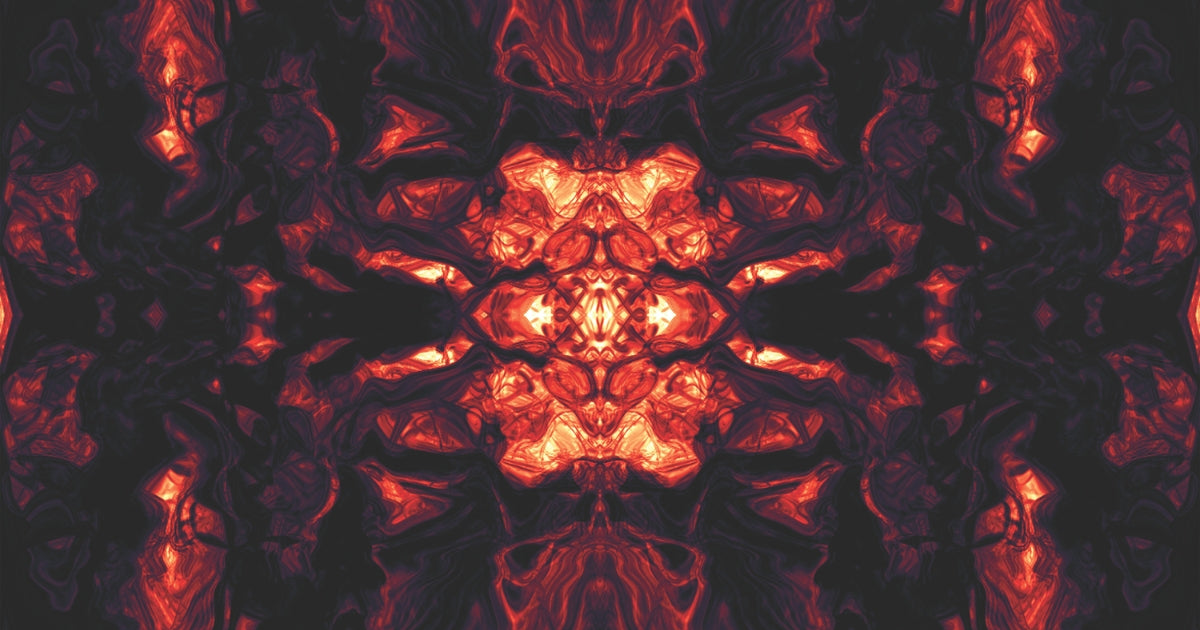
Reprint Story: A Billion Bodies More
By Sloane Leong
Originally Published by Third Flatiron Anthologies
I bought us our future! Our worlds, our freedom!” Her voice cracks in her throat, hate rising in fresh seams beneath her skin.
“No one is denying that, General, but any world that’d allow you to live in it unpunished is not worth its existence.”
“You. Need. Me.” She grinds the words out like stone to sand. “Who else is going to make the hard choices, to bloody their hands for those who can’t? Who won’t? You think you can do what I can?”
***
She’s running.
Calloused soles taste the new path as she sprints, thickened skin recording the rhythm of pebble and grain underfoot. In this iteration of the labyrinth, cool marble overtakes rocky trailheads. In this iteration of bodies, wrinkles stretch over every inch of skin, splotched with the marks of a lifetime beneath a sun she’s never seen. She runs up the switchback hall, the liquid-smooth floor flanked on either side by violet walls, painted with jellyfish arabesques. Above her, the night spreads into a wide black pool.
She slips and rights herself, the seamless ground unforgiving, the incline burning the tops of her feet. On either side of her, the walls groan a warning. It’s coming, she thinks. It’s coming, and she cannot make this foreign body move any faster. The adrenaline suspends the ache into something that floats just behind her, an afterimage of pain.
The immense heft of the swarm’s presence makes itself known to her before she can see it. An electrified suspension in the atmosphere, metallic on the tongue. It settles in the pulp of her teeth, ionized. The swarm is just behind her, chewing up the labyrinth with a mutagenic hunger and excreting a new tangle of choleric paths. She remembers a time when this was a new terror; when the swarm screamed her bones into atoms. Now she runs with a shark’s impulse, breathless without the rush of wind forced down her lungs.
There is only one law in the labyrinth, a reflex set in every body that she cannot overcome: run. Even through the chatter of trauma and infection, when her skin is inside out, she runs. At her back she hears a scream like a buzzsaw touching down on iron—then the thunderous buzz, creeping up and remaking the hall behind her. She doesn’t look. There is no point in looking. What matters is what’s before her: the maze yet unchanged, her true soul bounding out ahead of her like a ghost, fleet and fleeing.
***
The first time she’s acclimated enough to maintain consciousness through the transformation, she has been running the labyrinth for half a century—at least it seems that way. When the swarm passes her by, a few miles south of her position, she sees it shift not only the topography of the labyrinth, but the seasons, the falling arcs of the suns. She cannot trust the signs of transformation around her, nor the stratospheric shift of color. She can only trust the wear on her body, the keloid notes it leaves on her over time. She has watched her hands shift to wrinkled claws within a breath, felt her joints rust into immobilization in a blink. There is no denying time in the jaundiced rings on her limbs.
She runs, cutting through the frozen fog across her path. In the white haze, time moves slower and slower until it reaches a standstill. She shivers her energy away, and pebbles flick up hard at her shins. The memory of her body, her true body, is as untrustworthy as the environment around her. She remembers a vague palette of colors she associates with self: slate gray hair; ochre skin; pulpy scars the color of carnations splashed along her arms, chest, and navel. She remembers a tightening at her throat and a sea of black quartz fragmented and floating, harsh light glinting off the shards. Her memory stutters. She reaches for the image, but it fades like smoke whenever she grasps at its tendrils.
What she remembers with more acuity is the pain. When you know a body well enough, every ache is magnified with the memory of its infliction, the echo of its chronic persistence. The body anticipates the pain, which is as good as feeling it. Scars swell and sting at the sight of metal. Cancers throb in sleep. A known body is a distraction, a diversion from the truth about flesh. It dies to live.
She runs. Shallow, frozen mud deepens to a frost-rimed bog, stemming her sprint. A storm is growing louder, an electric hum cresting at her back. The woman drags her limbs through the mire and makes her first mistake: she looks back.
A wall of black smog drowns the world, engulfing everything in its path for miles in each direction. She struggles against the sucking slurry, screaming out curse-laced prayers as it pours over her like an infernal liquid.
And then all is dark.
“…and the death toll has been numbered in the billions. You have the right to hear these changes in full upon–”
“Do you think there are any rules in war besides winning, Justicar?” Iala spits the words with more venom than she thinks she can muster, resentment a congealed film on her tongue. In the audience, she sees her daughter, Imela, her brothers, her mother, and uncles watching on in silence, as she requested. Imela’s hands are clenched into little red fists beneath her grey-green formalwear grieving garments. Her eyes bloodshot, eyelids puffy. The sight of her daughter on edge, fearful, makes her bite into the red of her lip. Iala’s mother has her hand gripped tight on Imela’s shoulder, willing her to be still. There is no point in her family throwing their lot in with her, for them to make a play for justice. Iala knows now that there is no justice to be had here. No minds to be swayed.
“This is not the war, Lieutenant General.” The Justicar arranges one hand over the other, patiently bemused. “This is just where you answer for it.”
***
Being eaten is the same series of sensations every time. An intense gravity settles over her, across the liquid surface of her eyes, the buds of her tongue. The pressure pulls at her until skin gives way from fat, the first wave of pain sending her heart into a rabid beat. It is an invasive extrication—a stretching that somehow snaps and breaks over and through her like glass, suffocating her in an inferno of ignited nerves and starburst capillaries.
She is a ravening frenzy of form: untethered; sightless; bodiless. Then, a growing absence emerges from where her corporeal form should be, a hollowness that occupies her entire existence. She is outside of conglomerate space, a brokered soul edging out of exteroceptive territory. A great resonance crawls through the cloud of her unself, pulling the motes of her consciousness back into some semblance of form. It takes eons. It takes seconds. She is thick and viscous, once more with a broad physicality and then, again, darkness.
***
When she awakes, warm rain is pissing down on her from a sky the color of asphyxiation. Raindrops pool in her eyes and when she turns onto her stomach, false tears pour down her cheeks. A creature suddenly blurs around her, darting through her periphery in fear. She lifts herself up from the mud and watches the creature veer down a ravine that wasn’t there before.
Before the cold, the bog. Before the swarm. The devouring.
Answer for it, a voice says to her, the wisp of a memory stinging with its sudden absence. Answer for what, she thinks.
When she sits up, she finds her vision somehow warped, stretched wide. There is a sensation that she is standing just off-center from where she should be. She strains her ears to hear, but there is only silence, no trembling buzz warning of a black flood. She tries to stand and topples sideways, catching herself on all fours. Strangely, positioning herself on all fours feels comfortable. She crawls to a silty puddle, the indents of the passing creature’s hooves already small puddles themselves.
She peers into the agitated water. There is nothing familiar staring back. The face looks obscenely gaunt, its features flat and pale. The woman reaches into the water, sees a sinuous hand moving in tandem with her intent. The hand dips into the water. She feels the cool sensation, as if her own fingertips had been submerged.
This is not me, she thinks, pinching a red pebble between the long, thin fingers. This is not her body. Whose, then? Somewhere, underneath the steady beat of rain, the swarm hums a hungry promise of return.
She runs.
***
Another day, year, epoch later, she wakes up as someone tangled between human and machine. Scythe-feet beat against the earth. Clawed, prosthetic legs meant for speed and efficiency curved down from her hips. She does not know why, but they inspire a sizzling distaste in her. They are inferior, not in their construction, but in their meaning—they are the symbol of a lesser creature. Around her, the labyrinth has mutated into a copper desert. A hot wind rushes mercilessly down the dunes. Sideways sheets of amber dust mar her vision, and a voracious sun glares down with the heat of a god’s judgment.
The woman wets the back of her teeth with a forked tongue, engages every cell of her body into the syncopation of her sprint. The half-metal chassis of her new body burns at the seams where prosthetics meet flesh. The new rows of teeth in her mouth are filed down to slivered points. Who are you? This body’s arms were already sparking with damage when she awoke, the joints at her cybernetic shoulders smoking. She slows her pace, listening to the stride of this new body, noting the hitch in her right hip, the crackle of the joint, worn bald of its cartilage. She feels the body’s alien fatigue and lets the strangeness of it ground her. It is not her own.
Who are you? All the bodies that the swarm gives her have been someone else’s, not simply synthesized from nothing as she had once thought. No, the negentropic swarm makes her wear bodies already full of pontine history—some in the peak of youth, others geriatric. They seem random, but somehow, strangely familiar. Some bore scars or open wounds that still wept as if fresh. Others had newborn breaks and arthritic limps.
Where were their souls? she wondered. Were they being punished as well? Was this a punishment? Had she not always been here?
Silence—sudden and hard, with a warning vibrato up the length of her spine. The woman forces herself to push on, all predator haste and searing breath, ignoring this body’s ailments and the questions itching at her temples. The swarm is coming, mapping the world as it vaporizes its work and births a new one in its wake.
***
Living metamorphically becomes a profanity. Every body she’s spirited into is a sacrilege. She is starving for her own flesh, yearning for the texture of old scars, the predictable balance of the body she was born with. But even that she knows is a dream. The woman tries to mimic her own stored reflexes, but her current body has been whittled down to bone, muscles atrophied. Metal cuffs are clamped around her wrists and ankles, tethered to nothing. Flesh grows over the rusty irons as if she’s been wearing them for years. This body is that of a prisoner. She is doubly incarcerated, trapped in strange flesh and steel.
At this moment, the labyrinth is a striped ravine—multicolored strata streaked red and amber and jaundiced yellow. It reminds her of dying, of fatty layers of flesh splayed open. Her bodies don’t require feeding, nor do they need sleep. They degrade only with time, sustained in their current form by some unknown mechanism. When she tries to eat, food spills out of her, rejected with a hateful velocity. She doesn’t remember when she last slept, only the half-unconsciousness that comes when she is the swarm’s meal.
There is an inhuman logic to her living and dying, just as there is an arithmetic to when the swarm decides to take her. It’s a sluggish torture, a steady insistence of the body’s diseases or injuries that neither spread nor heal. The bullet holes from an unseen gun weep a steady stream of blood and lymph, the chronic nausea roils her stomach. She is trapped in these bodies that are, in turn, trapped in time; never mending; never degenerating any further.
The woman thinks about suicide. She feels an ambiguous shame at the idea but cannot find the principle or dogma that she’d subscribed to in her past to guide her. Is it suicide when you’re not killing your own body? Is it suicide when you’ve already died once? She doesn’t think on it long. This new body can’t even begin to outpace the swarm, and so, she decides instead to climb. The scalloped garnet walls provide enough of a foothold for her, and soon, she is at a high enough point on the harsh cliff face that the temperature has changed.
Stars blink into being above the woman as she sits staring into the night sky. Why not, she thinks, deja vu lapping at her consciousness. She shuts her eyes and uses what little energy she has left to fall forward, over the edge of the ravine, down, down, down…
***
The woman awakes at the bottom of the ravine in a new body, the shadow of the swarm passing over her like a starship’s wing. A starship, she thinks, pressing the heels of her hands into her eyes until she can see the red back of her lids. I’ve been on a starship. No…starships. Many. Thousands. The image flips over and over, a spinning coin.
“…we need your decision, Commander!”
Myriad starships drift in innumerable slivers, all the colors of the nebula flickering over the laser-eaten hulls like celestial dancers. Iala pulls at the collar of her uniform. Sweat pours down her neck. They are the last ones. Her communications are throttled, the rest of her fleet immobilized. There is no one to ask for permission. It all falls to me.
Suddenly, the ocean of oblivion stretched out before her shudders. Around her, screams ring out. The warbling pitch of them brings the image of children to her mind. Her ears ring with the outcries, but she cannot bring herself to look away from the destruction, from her failure.
"Defenses are down, Commander!”
“A second displacement missile incoming–!”
Enraptured by the remote memory, she ignores the nausea rising in her throat as she hangs onto every image, every panicked shout. Sordid tactile light whites out the scene and she vomits. She spits out bile, ignoring her foreign body’s fallout, the sweat prickling down her neck despite the ravine’s cold. The afterimage of starship wreckage lances through her, a beacon and a blight.
***
Her not-bodies oscillate between maimed and whole, and last for less and less time. She looks for patterns in their injuries, but there is no rhyme to it—no rhythm to the gender, age, or brokenness. She tries suicide and fails each time. Drowning. Bleeding. Strangulation. The swarm tears her out of each corpse and forces her into a new one, the movement of her soul as inconsequential as a battery replacement. She wonders if the swarm views these attempts as tantrums. If it sees her as a child. She thinks about children, and a little girl’s face blooms in her periphery—dark skin, black hair. Her heart contracts. The face disappears.
Her current body ripples with muscle. There’s a healthy heft to her limbs—save a missing left arm—but in her wide shoulders and tapered waist, there is a deft balance that she hasn’t felt in a long time. The labyrinth is a tangled circuit of cave systems. The only light she finds is bioluminescent algae refracting a faint green-blue through crystal pillars.
She wanders in the dark for days until she stumbles and finds herself plummeting down a jagged shaft. The woman screams, her voice startling her with its deepness, body ricocheting off stone until she lands as a splintered heap in a shallow stream. She feels down her thigh for damage, finds her femur bulging with fugitive marrow.
The pain doesn’t subside. She limps deeper into the caves, dragging her useless leg behind her. She feels something moist on the ground, runs her fingers through the wetness and sniffs at it. Blood. Her blood. She’s going in circles. She screams and smashes her fists against the cave walls. The cave quakes in response. A dull roar grows into an agitated quake that throws her to the ground. Rocks begin to fall, crushing her, bursting a lung with bone, the sudden breathless weight turning her pulse into brute syllables of pain.
She dies.
“…the unauthorized use of a recombinant lance, the unauthorized use of resonance guns, and the failure to seek approval from your Sector Marshal. Lieutenant General Iala Red-of-Palm, how do you plead before your accusers?”
Iala floats in the polished black bowl of the court chambers, suspended in an antigrav grip. She holds her victory in her heart like a knife, lets the edge cut into her bitter rage, her hatred, until she finds a seam of control. Her body is limp, fettered by tranquilizers. She finds a way to move nonetheless, the corner of her lip curving up into a grin.
“I plead righteousness.”
She opens her eyes onto featureless, open grassland, orange against a white sky. The woman knows the feeling of the swarm now, from the instant it relinquishes her from the process of replacement. It has left its mark on her mind, even as it voids every burgeoning memory.
“Righteous…” The words stick in her head like a scorpion stinger. The woman mouths it, then speaks the word aloud, but from this throat, the sound of it is low and gravelly—not the high, clear tenor in her memory.
But the taste of the word is the same, as familiar between her teeth as salt and bile. She tries to think of what righteousness feels like. A perfect assuredness? A rush of warmth as you speed towards action? The woman feels for the sensation in her memory, but finds only a worm-eaten recollection, gummy with the residue of grief.
***
Upon awakening, her body sprints away from her will, every stride dragging the filaments of her soul behind it. Her bodies fight to live until she remembers the futility, teaches each flesh the foolishness of instinct. How long can this go, she wonders. How long can she run without memory, bleed without origin, go on with no end in sight?
If there is an end, is it another thousand bodies away—a million? Either way, she cannot take not knowing. What have I done?
She cannot run and suffer without knowing, so she forces herself towards the shimmer of the swarm in the distance, where it follows its own secret trajectory. If she can inhabit the dead space between transference, when she is bodiless and solely herself, she can live in her recollection.
She runs, chest matted with mud, cheeks and lashes salted white. The growling hum grows ichor-thick, leaves no room for any other sound in her ears. She tails the dark wall of the swarm as it shifts the world from plains to jungle, erecting canopies of towering trees and tangles of heavy underbrush. Her lungs expand as she climbs and jumps from root to trunk, reaching for the swarm with every drop of blood.
She jumps, swipes her hand through the blackness and the swarm splits into a hush. The woman freezes, pulls her hand away. The swarm descends on her after a pause, as if surprised by her audacity. It lathers over her body like flies, solidifies into a microbial, biting skin. Her mind cleaves free of her body, free of ghost meat swimming in sour sweat.
The woman dives for her past.
She knows subspace like a lover, intimate with all of its terrible vastness. Iala’s vision consists of all the colors of possibility, black hole sun on black sky, her army rendered to a crippled panoply against the backdrop. Echelon after echelon of enemy cruisers span out before her, their particle whips coiled in wait. They’ve immobilized most of her army, shown her “mercy” by leaving her soldiers maimed, but not slain. It makes her sick. Iala knows her next move has its origin in words—to regroup and strategize with her fellow generals—but her comms have been incinerated, her starship’s throat cut to ribbons.
Surrender is unthinkable. She cannot leave her fleet to a miserable existence indentured to the enemy. Cannot compromise the liberty of the worlds that are depending on her. Cannot fail the families waiting to look into the sky and see it wiped clean of this war’s bloody leavings. Her family. Her daughter, Imela. Iala’s hand hovers over the interface. The tendrils rise up to meet her as she arms her catatonic ship with its final payload. This is a last resort; an untested, final reach towards victory. She thinks of her daughter, only a few jumpgates away from all this death. A few seconds from hearing the simmering howl of an enemy gun preparing to fire. The faces of her soldiers and her lieutenants overlap the image of Imela’s face. She sees them as they might have been as children: scarless and smiling, eyes absent of the despair that battle brings. Iala swallows her fear and visualizes her passkey. A pattern of waves lapping on an opaline shore.
She sets death free.
Temporal vectors gouge through time and carve the field of war out of space. Probability avalanches into the isolate prism, converges timelines, smothers every alternate destiny into annihilation. Artillery afterbirth shakes her vision red, then gold—every disowned shade of destruction. It takes all the time and no time at all for the recombinant lance to force a second reality into Iala’s own. The enemy fleet has suddenly duplicated, but the new ships are growing out of the originals like a cancer. New matter displaces old. The enemy festers before her, and so do her own ships, shrapnel spawning viral particle effigies.
The void whimpers with death in an impossible tone, spatiotemporal borders of the recombinant lance retreating, synchronizing the vortex of dual realities into one existence. Realties inert, Iala collapses, the disintegrated sea of doubled souls and dual warships burning on the faces of her gods.
The memory erupts and curls into ash. Iala’s resists, but the swarm pulls her down into a stillborn body. The possibility of returning to nothing vanishes.
“The sentence for your crimes is perennial death for every soldier killed in our timeline and the timeline you thought fit to summon with a recombinant weapon. Every life will be lived out in every body whose soul you saw fit to pilfer. This sentence will be served on the prison planet, Oralt, under the warden–”
The pieces fall like phonon shell casings, a convulsion of deja vu. A billion souls, Iala thinks as she comes to. A billion deaths reaped in all her militant profligacy.
Iala crawls desperately from the wreckage of the transfer pod, pulling her mangled legs from the heat of the crash. A scream tears from her lungs, then bubbles into an uncontrollable laugh. Punished, she repeats over and over in her head. Punished for fulfilling my duty. Banished for their cowardice. A black sun glowers like victory on the horizon—a triumph just as displaced; just as distant.
And now, a billion lifetimes with her recast in the bodies of the dead, exchanging vessel for vessel without interval. Iala nurtures the revelation, focusing it into a single locus of pain, and purpose, and glory, as the volume of her identity builds to a crescendo of full cognition until her mind casts the invasive flesh into a mold of her history.
She is Iala, Red-of-Palm, victor unredeemed, warmind superior, reaping the spoils of banishment for her treason.
Tears stream from her eyes and Iala can see herself in the jet-black patina of her mind’s eye. Clutching the images, she whispers her past into the oblivion of her present, but the swarm is already maggoting through her memories, chewing away the pulp of her recollection. Iala howls terror into the sky, unprepared for the obliteration of self into pure protracted inexistence—pure animal; pure prey; all reflex; no will.
Iala laughs, manic with betrayal, until the transfer pod moans behind her. She turns, the laughs subsiding between clenched jaw. An ocean of nanites teem over the shipwreck, over the tundra, towards her. The swarm is blacker than space, devouring the winter light. She wonders if the AI swarm feels righteous, like she did. If it knows loyalty. If it would sentence her just as quickly as the Justicars did. If its body count rivals her own. She thrashes in her fetters, worming backwards from the steady of the swarm, decisive as a tide.
It reaches her and swallows.
Iala. My name! My war! My victory!
Time diminishes into a miasma of nothingness.
***
She’s running. She drags the body she wears through the labyrinth by its amygdala, willing them through her prison, one neural impulse at a time. The swarm has caused her to outlive the people that exiled her, the generation she condemned to triumph. Yet even when her blisters pop, or the machinery in a left lung collapses into smoke, she thinks, I was right.
I bought her a future.
The thought hardens her resolve, the certainty of it pure, even in its obscurity. She wears her penance like a crown, and measures out time in the rings of her soul, petrified by her reiterate existence. A thin film of virtue colors her thoughts, her doubts, and every aching step sparks off some faint sense of nobility.
Whoever she is, the price was worth it.
Time is a constant wound. It smells of stillborn killzones and sundered flesh. It smells of sickly starships being torn apart. Of resolute conquest. The purity of purpose. Of a soul forever wet from rebirth. The labyrinth consumes her. The swarm consumes them both.
By her millionth death, she doesn’t notice the dying.
Copyright © 2021 Sloane Leong
The Author
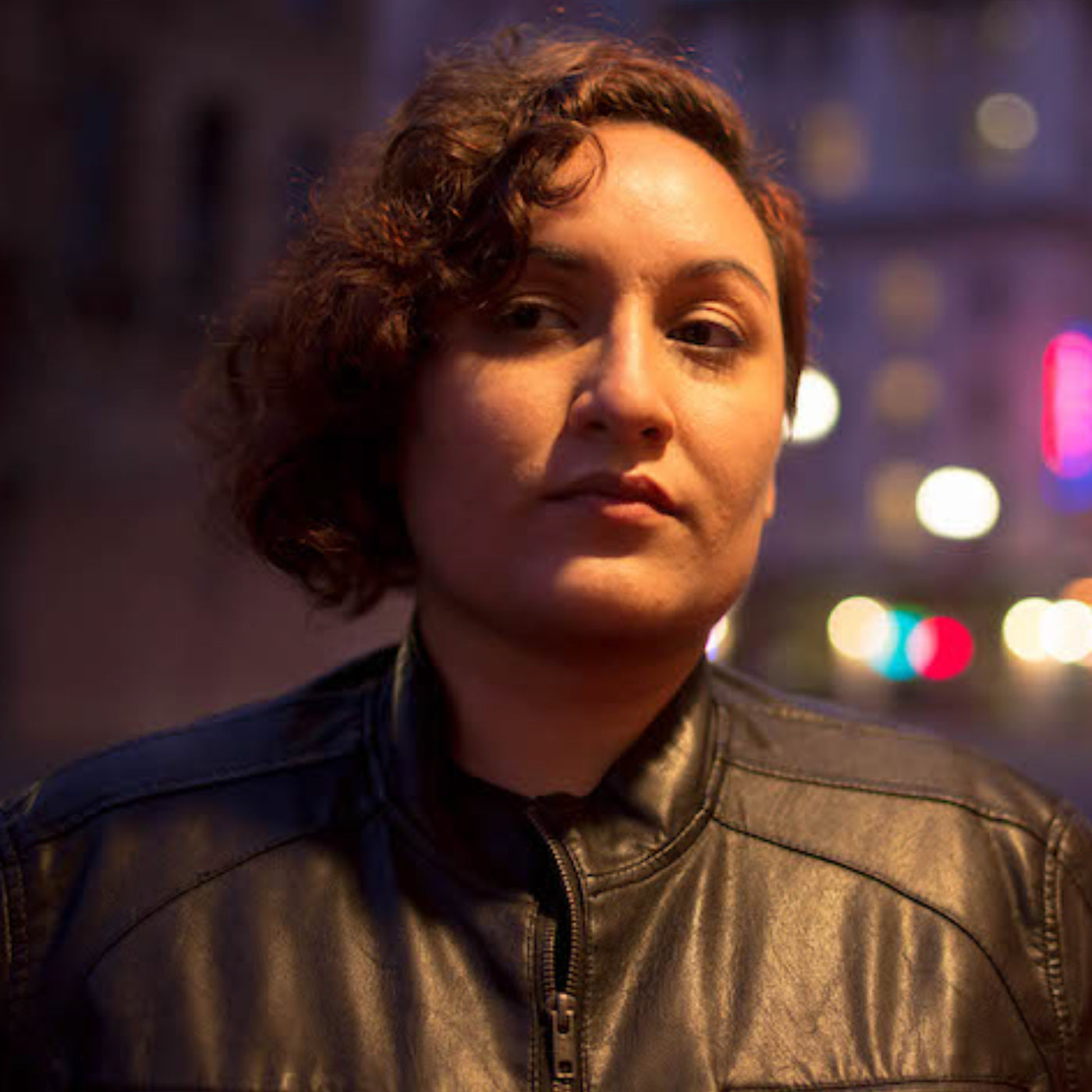
Sloane Leong
Continue reading

Subscribe to our newsletter
Promotions, new products, and sales. Directly to your inbox.


